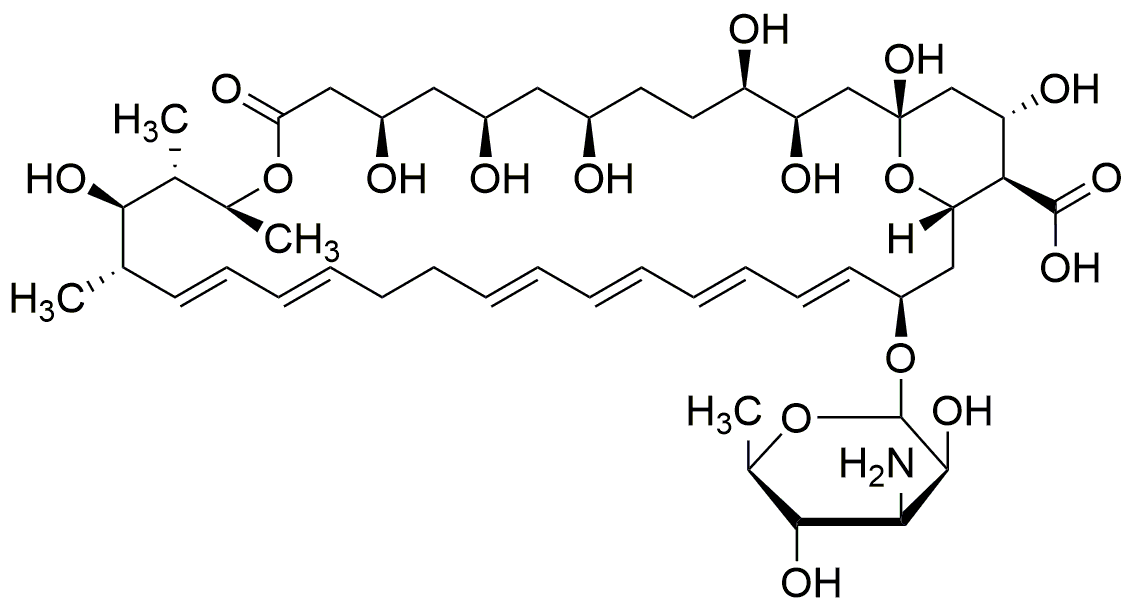Nystatin powder is widely utilized in research focused on:
- Antifungal Treatments: Commonly used in the treatment of fungal infections, particularly those caused by Candida species, making it essential in both clinical settings and pharmaceutical development.
- Veterinary Medicine: Employed in veterinary applications to treat fungal infections in animals, ensuring the health and well-being of pets and livestock.
- Topical Formulations: Incorporated into creams and ointments for localized treatment of skin infections, providing effective relief with minimal systemic absorption.
- Research on Drug Resistance: A valuable tool in studies aimed at understanding and combating antifungal resistance, helping researchers develop more effective therapies.
- Food Preservation: Utilized in certain food products to inhibit mold growth, extending shelf life and ensuring safety for consumers.
General Information
Properties
Safety and Regulations
Applications
Nystatin powder is widely utilized in research focused on:
- Antifungal Treatments: Commonly used in the treatment of fungal infections, particularly those caused by Candida species, making it essential in both clinical settings and pharmaceutical development.
- Veterinary Medicine: Employed in veterinary applications to treat fungal infections in animals, ensuring the health and well-being of pets and livestock.
- Topical Formulations: Incorporated into creams and ointments for localized treatment of skin infections, providing effective relief with minimal systemic absorption.
- Research on Drug Resistance: A valuable tool in studies aimed at understanding and combating antifungal resistance, helping researchers develop more effective therapies.
- Food Preservation: Utilized in certain food products to inhibit mold growth, extending shelf life and ensuring safety for consumers.
Documents
Safety Data Sheets (SDS)
The SDS provides comprehensive safety information on handling, storage, and disposal of the product.
Product Specification (PS)
The PS provides a comprehensive breakdown of the product’s properties, including chemical composition, physical state, purity, and storage requirements. It also details acceptable quality ranges and the product's intended applications.
Certificates of Analysis (COA)
Search for Certificates of Analysis (COA) by entering the products Lot Number. Lot and Batch Numbers can be found on a product’s label following the words ‘Lot’ or ‘Batch’.
Número de catálogo
Número de lote/lote
Certificates Of Origin (COO)
This COO confirms the country where the product was manufactured, and also details the materials and components used in it and whether it is derived from natural, synthetic, or other specific sources. This certificate may be required for customs, trade, and regulatory compliance.
Número de catálogo
Número de lote/lote
Safety Data Sheets (SDS)
The SDS provides comprehensive safety information on handling, storage, and disposal of the product.
DownloadProduct Specification (PS)
The PS provides a comprehensive breakdown of the product’s properties, including chemical composition, physical state, purity, and storage requirements. It also details acceptable quality ranges and the product's intended applications.
DownloadCertificates of Analysis (COA)
Search for Certificates of Analysis (COA) by entering the products Lot Number. Lot and Batch Numbers can be found on a product’s label following the words ‘Lot’ or ‘Batch’.
Número de catálogo
Número de lote/lote
Certificates Of Origin (COO)
This COO confirms the country where the product was manufactured, and also details the materials and components used in it and whether it is derived from natural, synthetic, or other specific sources. This certificate may be required for customs, trade, and regulatory compliance.


